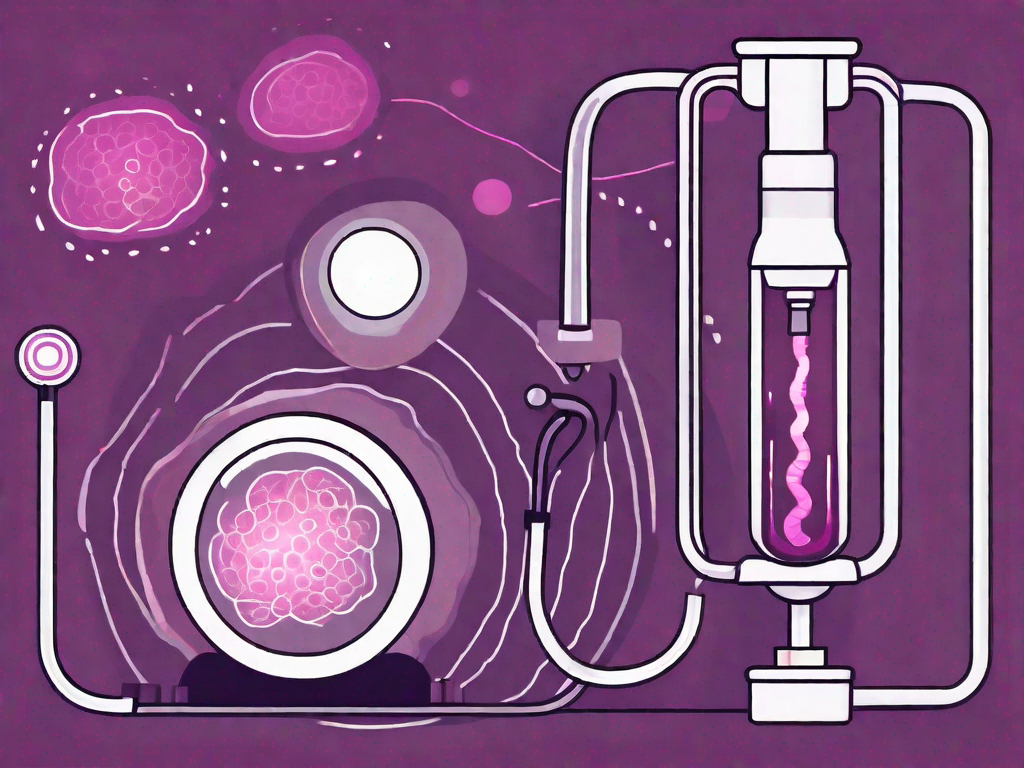Uncover the crucial role of colonoscopy in preventing colon cancer, a leading cause of cancer-related deaths. This detailed blog explains how colonoscopies can detect and remove polyps, the precursors to colon cancer, especially in individuals over 50 or with risk factors like a sedentary lifestyle and poor diet. The post demystifies the colonoscopy procedure, from preparation to execution, highlighting its minimal risks compared to its life-saving benefits. With alternatives like stool tests and virtual colonoscopy also discussed, this article is a vital read for anyone seeking to understand colon cancer prevention and the transformative power of regular screenings.
Colon cancer is one of the leading causes of cancer-related deaths globally, but it doesn’t have to be. This silent threat develops slowly over time, usually starting from benign growths called polyps. These polyps can potentially turn into cancer if left undetected and untreated. Sadly, many people are unaware of the lurking danger within their colons until it’s too late.
It is essential to understand the risk factors associated with colon cancer. Age is a significant factor, as the risk increases with age. Individuals over the age of 50 are more susceptible to developing colon cancer. However, it is crucial to note that younger individuals can also be affected, especially if there is a family history of the disease or if they have certain genetic conditions.
Another risk factor is a sedentary lifestyle. Lack of physical activity and prolonged sitting can contribute to the development of colon cancer. Regular exercise and maintaining a healthy weight can help reduce the risk. Additionally, a diet high in processed foods, red meat, and low in fiber can increase the chances of developing colon cancer. Including fruits, vegetables, whole grains, and legumes in your diet can be beneficial in preventing this disease.
Through routine colonoscopy screenings, we have the opportunity to catch potential signs of colon cancer early on. By detecting and removing polyps during the procedure, we can significantly reduce the risk of cancer development and improve the chances of successful treatment.
During a colonoscopy, a thin, flexible tube with a camera is inserted into the rectum and guided through the colon. This procedure allows the doctor to examine the lining of the colon and identify any abnormalities, such as polyps or tumors. If polyps are found, they can be removed during the same procedure, reducing the risk of cancer development.
Colonoscopy screenings are generally recommended for individuals over the age of 50, and earlier for those with a family history of colon cancer or other risk factors. The frequency of screenings may vary depending on individual circumstances and medical history. It is crucial to consult with a healthcare professional to determine the appropriate screening schedule for you.
Aside from colonoscopy, there are other screening methods available, such as stool tests and virtual colonoscopy. These alternative options may be suitable for individuals who are unable to undergo a traditional colonoscopy or prefer a non-invasive approach. However, it is important to discuss these options with a healthcare professional to ensure the most effective screening method for your specific situation.
Early detection of colon cancer is key to successful treatment outcomes. If colon cancer is detected at an early stage, the chances of a complete cure are significantly higher. Treatment options for colon cancer may include surgery, chemotherapy, radiation therapy, or a combination of these approaches, depending on the stage and severity of the disease.
It is crucial to raise awareness about colon cancer and the importance of regular screenings. By educating ourselves and others about the risks, symptoms, and preventive measures, we can work towards reducing the impact of this silent threat. Remember, knowledge is power when it comes to protecting our health.
Why Colonoscopy is an Essential Part of Cancer Screening
Colonoscopy is widely recognized as the gold standard for colon cancer screening. It is a minimally invasive procedure that allows doctors to thoroughly examine the lining of the colon for any abnormalities. This direct visualization technique provides a comprehensive evaluation of the entire colon, allowing for early detection and prevention of cancer.
During a colonoscopy, a slender, flexible tube called a colonoscope is gently inserted into the rectum. The colonoscope has a camera attached to its tip, which enables the doctor to navigate through the entire colon. If any suspicious polyps or growths are found, they can be removed or biopsied during the procedure. This immediate intervention significantly reduces the risk of cancer development.
Who Should Consider Colonoscopy Screening?
In the United States, most guidelines recommend that individuals at average risk for colorectal cancer should begin regular colonoscopy screening at age 45 or 50. The choice between these ages may depend on the specific guidelines from different medical organizations and gender, However, individuals with a higher risk of colon cancer may need to consider screening earlier or more frequently. This includes individuals with a family history of colorectal cancer, certain genetic conditions, or a personal history of polyps or inflammatory bowel disease.
Talk to your healthcare provider about your risk factors and discuss the best screening options that suit your individual needs. Remember, early detection is key to successful treatment and improved outcomes.
The Colonoscopy Procedure: What to Expect
Understandably, the thought of undergoing a colonoscopy may cause some anxiety. However, it’s important to know that the procedure is generally well-tolerated and performed under sedation to ensure your comfort. Your healthcare provider will guide you through the entire process and address any concerns you may have.
Prior to the procedure, you will need to prepare your colon by following specific instructions, which typically include a clear liquid diet and a bowel cleansing regimen. This preparation allows for a clear view of the colon during the procedure, maximizing the effectiveness of the examination.
During the colonoscopy, you will be positioned comfortably on your side, and the sedation will help you relax. You may feel some pressure or mild discomfort as the colonoscope is gently guided through your colon, but the procedure itself is generally painless. The entire process usually takes around 30 minutes to an hour, depending on individual circumstances.
Preparing for a Colonoscopy
Preparing for a colonoscopy involves a specific set of instructions to ensure that your colon is adequately cleaned out so that the procedure can be performed effectively. Fasting is indeed a crucial part of the preparation process. Here are the typical steps to prepare for a colonoscopy:
- Dietary Restrictions: Your doctor will provide you with dietary instructions to follow in the days leading up to the procedure. This usually involves transitioning to a clear liquid diet a day or two before the colonoscopy. Clear liquids can include water, clear broths, tea, coffee (without creamer), clear juices (such as apple or white grape juice), and sports drinks. Avoid red or purple liquids and any liquids with pulp.
- Medication Adjustments: Inform your doctor about all the medications and supplements you’re taking. Some medications may need to be adjusted or temporarily stopped before the procedure, especially blood-thinning medications.
- Bowel Prep: Your doctor will prescribe a bowel preparation solution or laxative that you will need to drink the day before the colonoscopy. This solution will help flush out your colon and ensure it’s clean for the procedure. Follow the instructions carefully regarding the timing and dosage of the bowel prep. It’s common for this to cause diarrhea.
- Hydration: While you’ll be on a clear liquid diet, it’s crucial to stay hydrated. Drink plenty of clear fluids to prevent dehydration.
- No Solid Foods: On the day before your colonoscopy, you should not eat any solid foods. Stick to clear liquids only.
- Fasting: Typically, you’ll need to fast completely for at least 6-8 hours before the procedure. This means no food, liquids, or even chewing gum.
- Plan for Transportation: Arrange for someone to drive you to and from the procedure because the sedatives used during the colonoscopy can impair your ability to drive safely.
- Wear Comfortable Clothing: On the day of the procedure, wear loose and comfortable clothing.
- Follow Your Doctor’s Instructions: Always follow the specific instructions provided by your healthcare provider or the facility where you’ll be having the colonoscopy.
Benefits and Risks of Colonoscopy Screening
Colonoscopy screening offers numerous benefits in the fight against colon cancer. By detecting and removing polyps early, the risk of developing cancer can be significantly reduced. Furthermore, the procedure provides a comprehensive evaluation of the entire colon, minimizing the chances of missing any abnormalities.
Although colonoscopy is generally safe, like any medical procedure, there are some risks involved. These risks are rare but can include bleeding, infection, and the potential for a tear in the colon wall. However, the benefits of early cancer detection and prevention outweigh the potential risks.
Alternative Screening Methods for Colon Cancer
While colonoscopy remains the gold standard for colon cancer screening, there are several alternative screening methods for colorectal cancer, each with its own advantages and limitations. The choice of screening method can depend on individual preferences, risk factors, and medical history. Some common alternatives to colonoscopy include:
- Fecal Occult Blood Test (FOBT) and Fecal Immunochemical Test (FIT): These tests check for the presence of blood in the stool, which can be a sign of colorectal cancer or polyps. They are non-invasive and can be done at home. If blood is detected, further evaluation, often including a colonoscopy, is necessary.
- Stool DNA Test (sDNA or FIT-DNA): This test combines the FOBT or FIT with a DNA analysis of stool samples to detect genetic changes associated with colorectal cancer or precancerous polyps.
- Flexible Sigmoidoscopy: Similar to a colonoscopy, a flexible sigmoidoscopy is an endoscopic procedure, but it examines only the lower part of the colon (sigmoid colon) rather than the entire colon. It requires less extensive bowel preparation and sedation.
- Virtual Colonoscopy (CT Colonography): This imaging test uses a CT scanner to create detailed images of the colon. While it doesn’t require a traditional colonoscopy’s scope insertion, it still involves bowel preparation and some discomfort.
It’s important to note that the effectiveness of these alternatives varies, and some may require more frequent testing than a colonoscopy. The choice of screening method should be made in consultation with a healthcare provider, taking into account an individual’s risk factors, medical history, and preferences. In some cases, a positive result from one of these tests may lead to a follow-up colonoscopy for further evaluation.
Conclusion: Taking Control of Your Health through Colonoscopy Screening
Colonoscopy screening is a powerful tool in the fight against colon cancer. By taking control of your health and undergoing routine screenings, you can potentially prevent the development of cancer or detect it at an early and treatable stage. Don’t let the fear of the procedure hold you back – the potential benefits outweigh the risks.
Talk to your healthcare provider about colonoscopy screening, particularly if you are at an increased risk. Together, you can make informed decisions and take proactive steps towards protecting your health. Remember, your wellbeing is worth every effort, and early detection could be life-saving. Take charge of your health today and schedule your colonoscopy screening – your future self will thank you!






